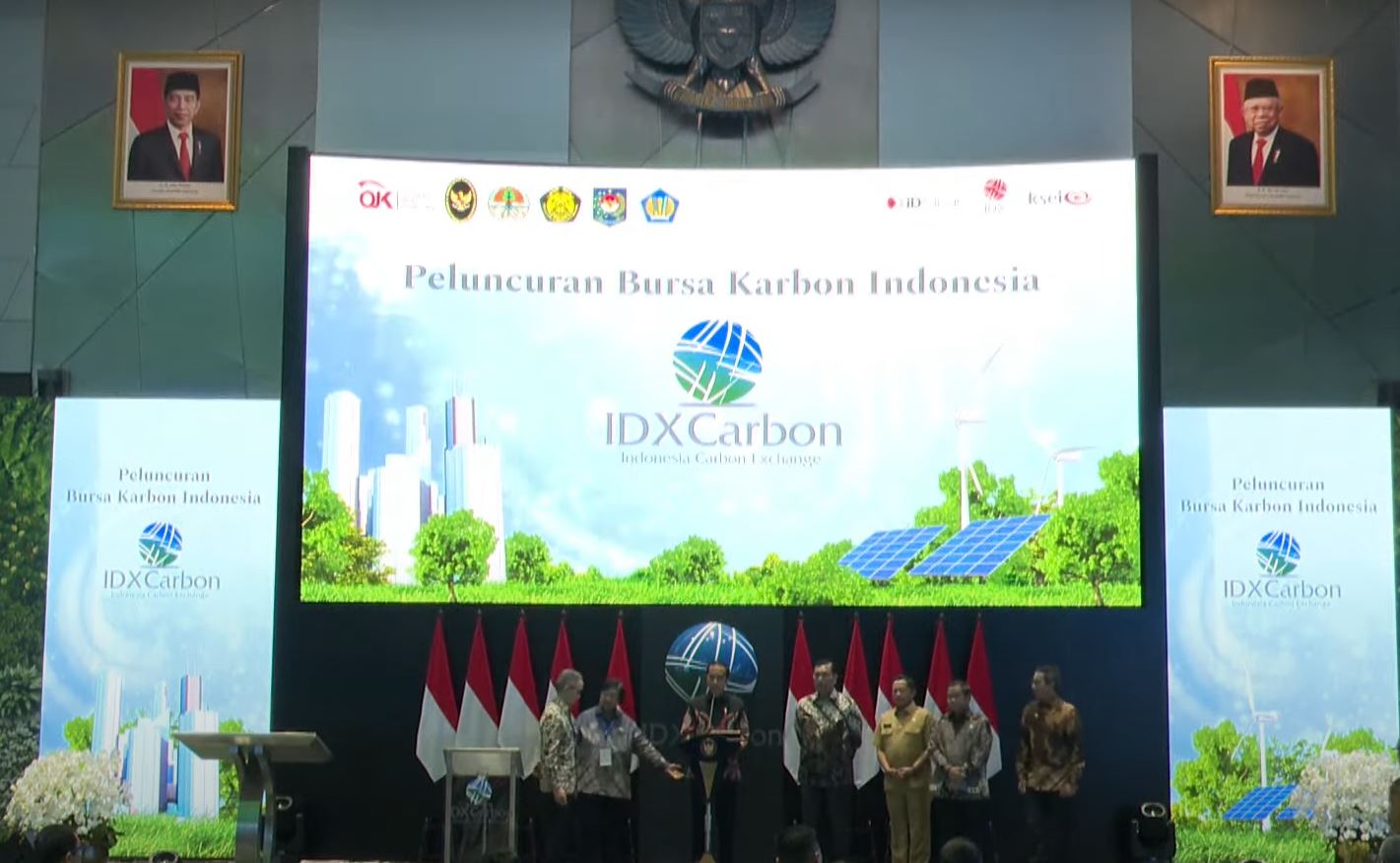OJK Leads the Charge: Indonesia’s Carbon Credit Market Takes Off
JAKARTA, RAKYAT NEWS – As the global push to reduce greenhouse gas emissions intensifies, carbon credits have become a vital tool in the fight against climate change. In Indonesia, the Financial Services Authority (OJK) plays a key role in regulating and overseeing the implementation of carbon credits, ensuring that the system aligns with sustainable business practices and environmental goals.
Since its launch in September 2023, the carbon exchange has seen transaction reach 400,000 tons of CO2, with a total value exceeding IDR 30 billion, will getting higher and higher
The OJK granted a business license to the Indonesia Stock Exchange (IDX) to operate the carbon exchange, as per Decree No. KEP-77/D.04/2023, issued on September 18, 2023.
Murtaza, Senior Deputy Director of Financial Derivatives Supervision at OJK, noted that the establishment of a new OJK directorate in February 2023 has increased the workload related to carbon credit management.
He highlighted the legal foundations of carbon trading in Indonesia. These include Law No. 16 of 2016, which ratified the Paris Agreement, Law No. 7 of 2021 on Harmonization of Tax Regulations, and Law No. 4 of 2023 on the Development and Strengthening of the Financial Sector (P2SK). Additionally, Presidential Regulation No. 98 of 2021 on Carbon Economic Value (NEK) and OJK Regulation No. 14 of 2023 on carbon trading through the carbon exchange provide further legal grounding.
“These efforts aim to reduce carbon emissions and prevent global warming,” Murtaza stated.
He explained that the Carbon Exchange operates as a marketplace for trading carbon emission allowances and credits. Companies with lower carbon dioxide emissions can sell their surplus to those with higher emissions, fostering a system where businesses can align their operations with environmental goals.
In a recent webinar titled “Safeguarding Carbon Credits for Business Opportunities and Environmental Sustainability,” hosted by Green Skilling, Dedra Arsyad, CEO of Muller Karbon Kapital Indonesia, provided insights into the implementation and application of carbon credits in Indonesia.
“Carbon credits serve as an incentive for companies or individuals to reduce their carbon emissions or actively combat climate change,” Dedra Arsyad said.
He explained that when a company purchases a carbon credit—often from the government—it gains the right to emit one ton of CO2. The revenue generated from selling these credits flows from companies to regulators. Companies with surplus credits can sell them to others, fostering a marketplace for emissions reductions.
Carbon credit trading is often linked to green projects like reforestation and renewable energy initiatives, which are monitored and validated by independent bodies to ensure they qualify for carbon credits. These projects span sectors such as forestry, waste management, renewable energy, and agriculture.
Dedra also outlined the two main types of carbon credits: *removal* and *avoidance*.
“Removal involves actions like planting trees that absorb CO2, while avoidance refers to strategies that prevent emissions, such as using electric vehicles,” he added.
In Indonesia, carbon credits are regulated under the National Registry System for Climate Change Control (SRN PPI), managed by the Ministry of Environment and Forestry. This system is designed to track climate change mitigation and adaptation actions, as well as prevent double-counting of efforts.
“All data and information regarding carbon emissions and carbon trading transactions in Indonesia are managed and stored under SRN PPI,” Dedra explained.
The Indonesian Carbon Exchange (IDX) was established to facilitate carbon trading in the country, under the mandate of the Financial Services Authority (OJK). The OJK appointed the IDX to manage the exchange through Decree No. KEP-77/D.04/2023 on September 18, 2023. All carbon credits traded on the exchange must be registered in the SRN PPI system.
“The Indonesian Carbon Exchange was officially launched on September 26, 2023. In the first half of 2024 alone, approximately 114,000 carbon units were sold, with total transactions valued at around IDR 5.8 billion,” Dedra concluded.
The success of the carbon credit system in Indonesia could serve as a model for other developing nations facing similar environmental challenges. By ensuring active participation from both the private and public sectors in carbon trading, Indonesia is not only addressing its own emission reduction goals but also contributing to global efforts to combat climate change.
Moreover, the involvement of OJK and the establishment of the Indonesian Carbon Exchange represent significant strides towards creating a transparent and accountable marketplace for carbon credits. This system enables businesses to align their sustainability goals with regulatory frameworks, fostering an environment where economic growth and environmental responsibility can coexist.
As climate change remains a pressing global issue, the role of carbon credits is expected to grow. Initiatives like those discussed in the Green Skilling webinar highlight the potential for carbon credits to drive innovation and investment in green projects, ensuring that economic development in Indonesia and beyond does not come at the expense of the environment. ( Uki Ruknuddin)


























Tinggalkan Balasan